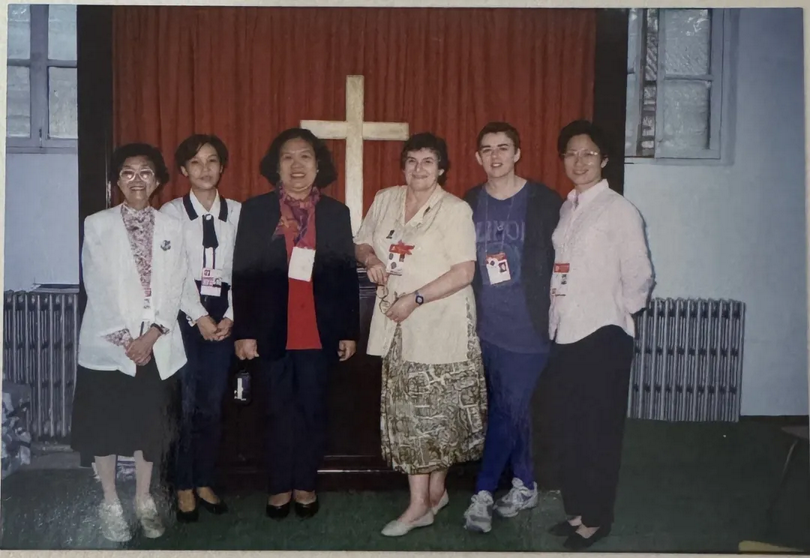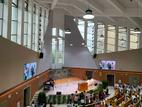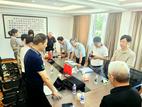Editor's note: This week, China and UN Women co-hosted the Global Leaders' Meeting on Women in Beijing—the same city that, 30 years ago, hosted the historic Fourth World Conference on Women under the theme "Action for Equality, Development and Peace." At that landmark event, a delegation of Chinese Protestant women joined more than 17,000 participants from 189 countries and regions. Among them was Pastor Li Yonghong, now vice chairperson of Beijing TSPM and senior pastor of Zhushikou Church, who offers this reflection on her experience and its lasting impact. Below is the full text.
From October 13 to 14, 2025, China and UN Women co-hosted the Global Leaders' Meeting on Women in Beijing. President Xi Jinping of the People's Republic of China attended the summit and delivered a keynote speech. The theme of the meeting was "One Shared Future: New and Accelerated Process for Women's All-Round Development."
I recall with joy the United Nations Fourth World Conference on Women and its parallel NGO Forum held in Beijing 30 years ago, in 1995. It was the largest international conference on women's issues in the history of the United Nations, bringing together 17,000 representatives from 189 countries and regions, as well as participants from UN organizations, specialized agencies, governments, and non-governmental organizations. Due to the scale and significance of the event, temporary religious venues were established within the conference site for delegates of different faiths. I was honored to serve as a Christian attendant in one of these venues, assisting Christian delegates during the conference.
Thirty years later, the Global Leaders' Meeting on Women is once again being held in Beijing. I believe its significance extends far beyond the event itself, serving as a historical reflection and a comprehensive review of global progress toward gender equality over the past three decades.
My most profound impression of the 1995 conference was its global affirmation and elevation of the value of both religious belief and gender equality. That event became a milestone in advancing women's participation in society. The "Beijing Declaration," adopted at the conference, explicitly included "the right to freedom of thought, conscience, religion, and belief" as a fundamental element of women's empowerment and advancement. As a woman from a faith community, I came to deeply understand that freedom of belief and gender equality are not contradictory but rather complementary foundations supporting women's spiritual and social fulfillment. When 189 countries unanimously adopted the "Beijing Declaration" and "Platform for Action," elevating gender equality from a "women's issue" to a "common concern of humanity," a natural resonance emerged between the religious principle of "the equality of all beings" and the global pursuit of gender equality.
My experience serving in a temporary religious venue during the conference deepened my understanding of the responsibilities of women in faith communities amid social transformation. Like women in other sectors, women of faith are builders and creators within society. The conference's focus on education, health, and anti-violence initiatives aligns closely with the religious mission of caring for the vulnerable and promoting social harmony. Through faith, we advocate for equality, engage in charitable work, and transform the positive influence of religion into tangible actions that empower women.
What remains most unforgettable to me is the shared call to "action" conveyed by the conference. Its theme, "Action for Equality, Development, and Peace," continues to serve as both guidance and a call to commitment for women in religious communities. We are called to uphold the ideals of equality inherent in our faith while taking concrete steps to challenge the marginalization of women within religious contexts. By demonstrating the strength of women of faith, we reveal the transformative power of women standing at the crossroads of tradition and modernity. Only by integrating the spiritual power of faith into women's development can we truly fulfill the vision of empowerment, enabling women to realize their full potential and make meaningful contributions across all areas of life.
Over the past 30 years, the number of female clergy in Beijing's Christian community has steadily increased, and their influence has become increasingly significant. They uphold love for both the country and the church, adhere to the Three-Self principles of self-governance, self-support, and self-propagation, and advance the Sinicization of Christianity. Actively engaged in pastoral ministry, they guide believers in charitable work and faithfully fulfill their responsibilities in promoting social harmony and stability.
I hope that, in their pursuit of a better life, all women will embody the words of General Secretary Xi Jinping, that every woman has the opportunity to shine in life, realize her dreams, and live a beautiful and fulfilling life.
Originally published by Beijing Municipal CC&TSPM
- Translated by Poppy Chan












